Stretched Chevrolet station wagon from the Milton Hershey School joins the AACA Museum collection
Posted on Mar 24, 2015 in Featured | 2 comments
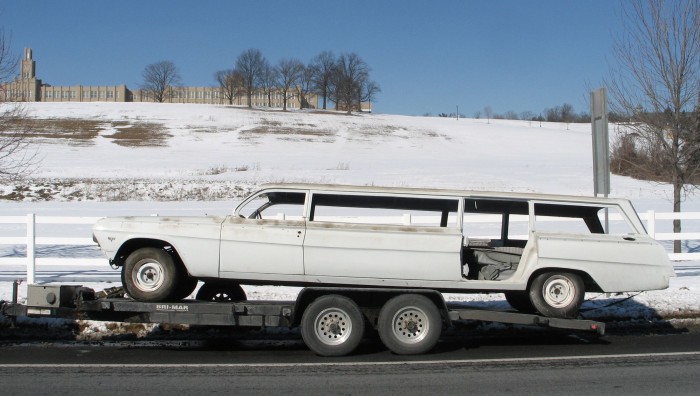
Buses were just too industrial for the Milton Hershey School in the early Sixties. Instead, the boarding school’s administrators wanted to transport its students to and from student housing in a manner that more resembled typical family life. To do so, they commissioned a fleet of station wagons – extra long five-row 14-passenger station wagons – and now, decades after going out of service, one of the wagons has returned to Hershey, Pennsylvania, and will soon go on display at the AACA Museum.
Located atop the hill overlooking the AACA swap meet and car show that takes place every fall in Hershey, Pennsylvania, the Milton Hershey School was founded in 1909 initially to provide a home and education for orphan boys, and later for impoverished boys and girls. With hundreds of students distributed among dozens of houses around the city, it needed not only a more intimate way to transport the students, but also a more efficient one than sending lumbering buses around to multiple houses.
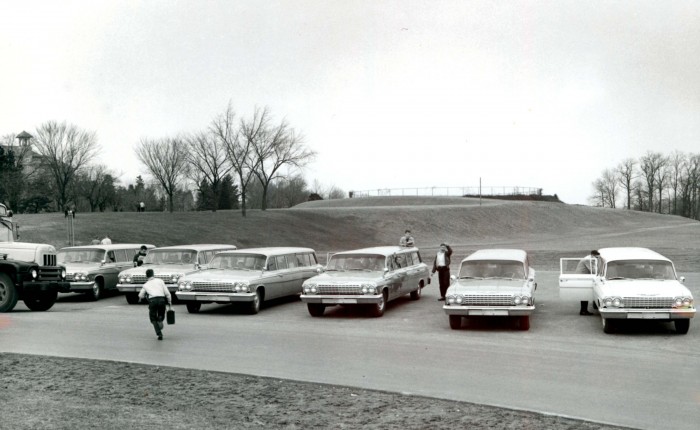
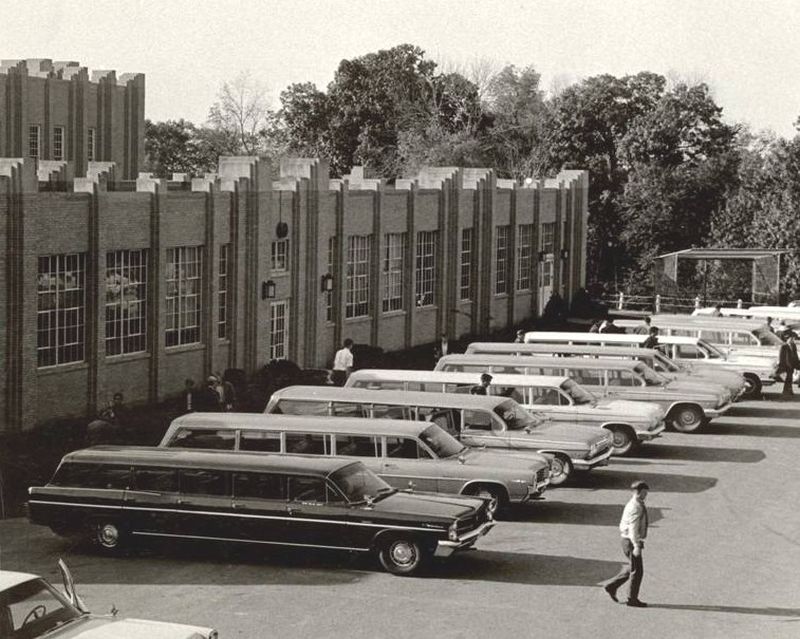
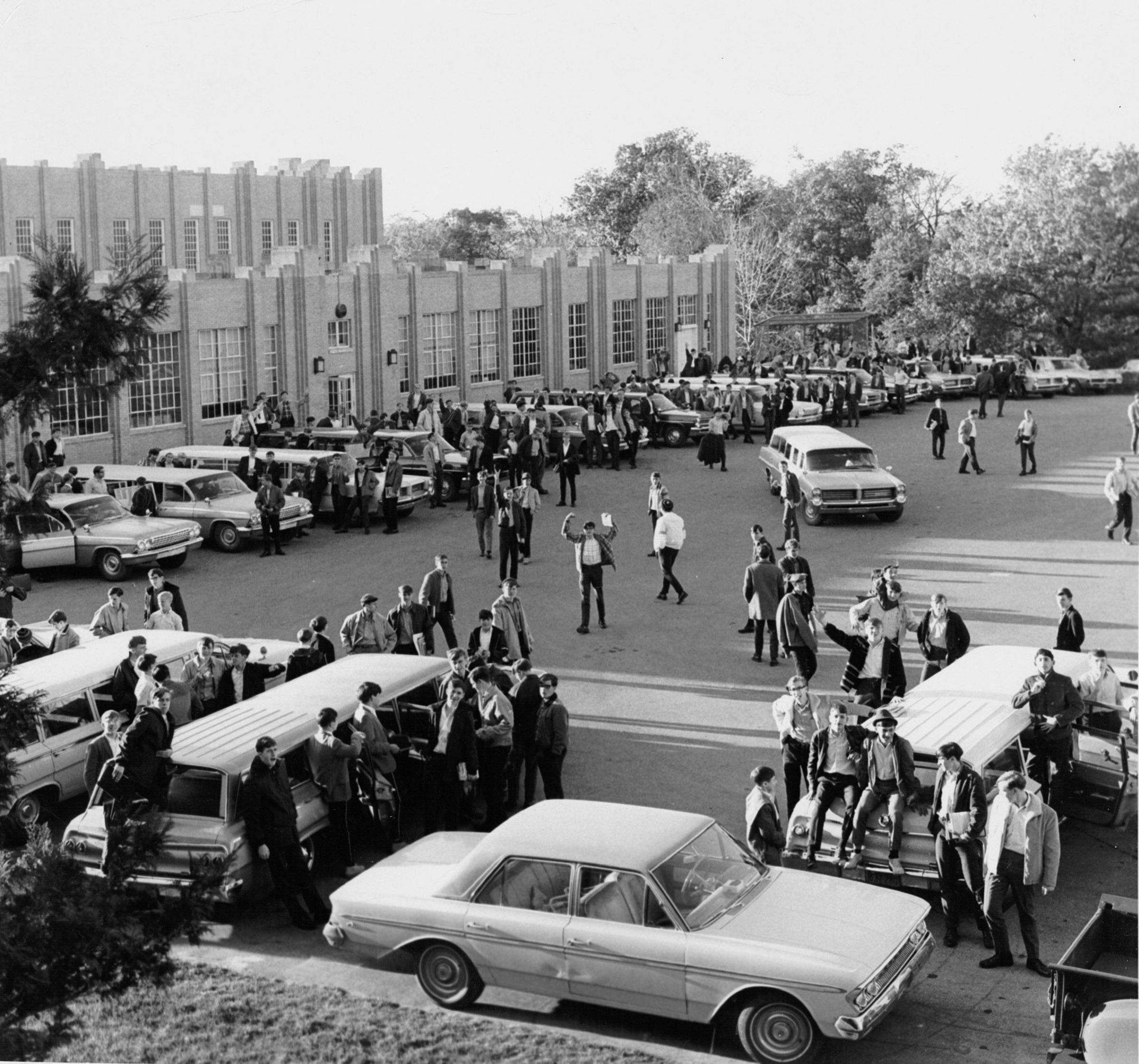
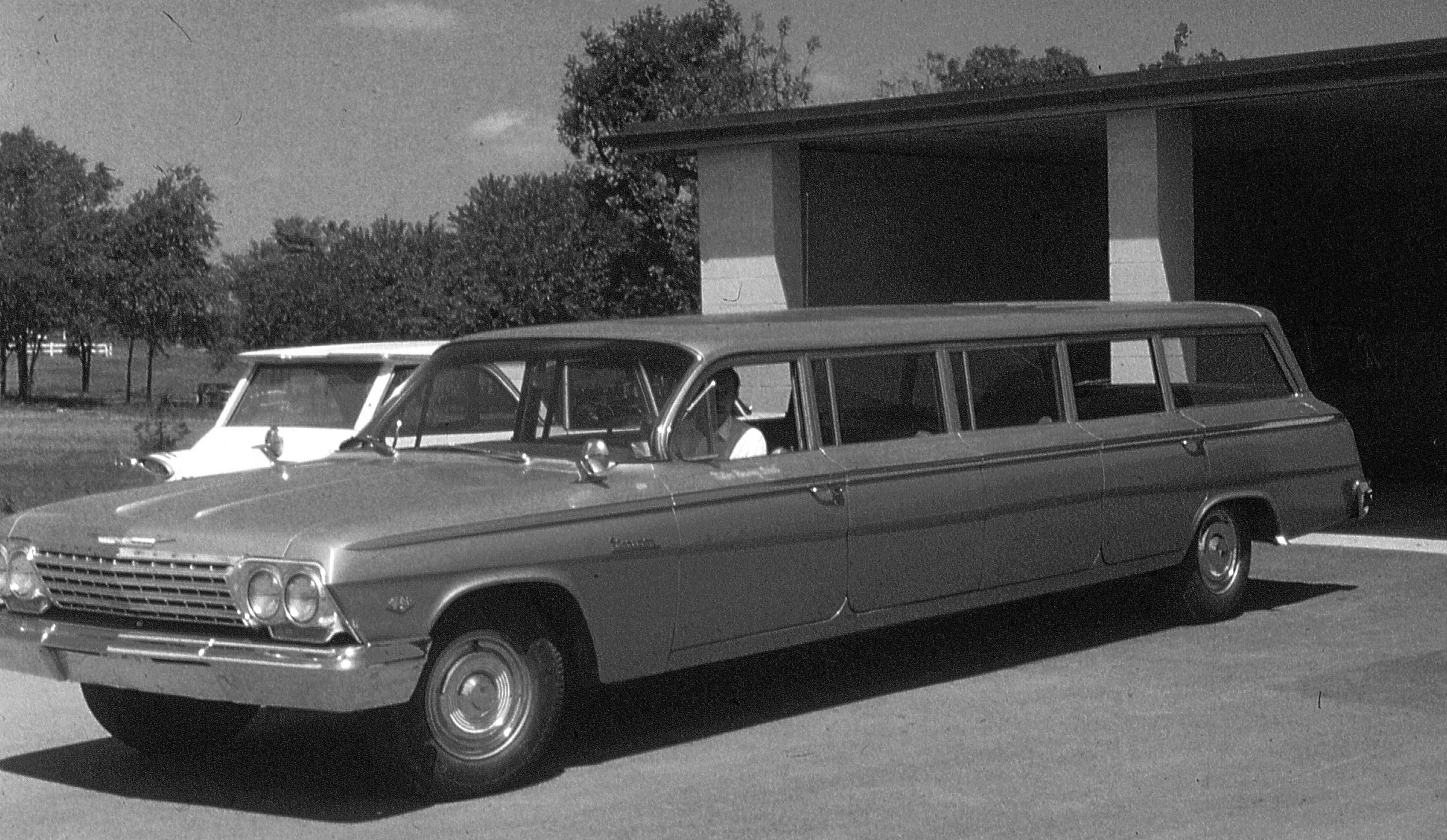
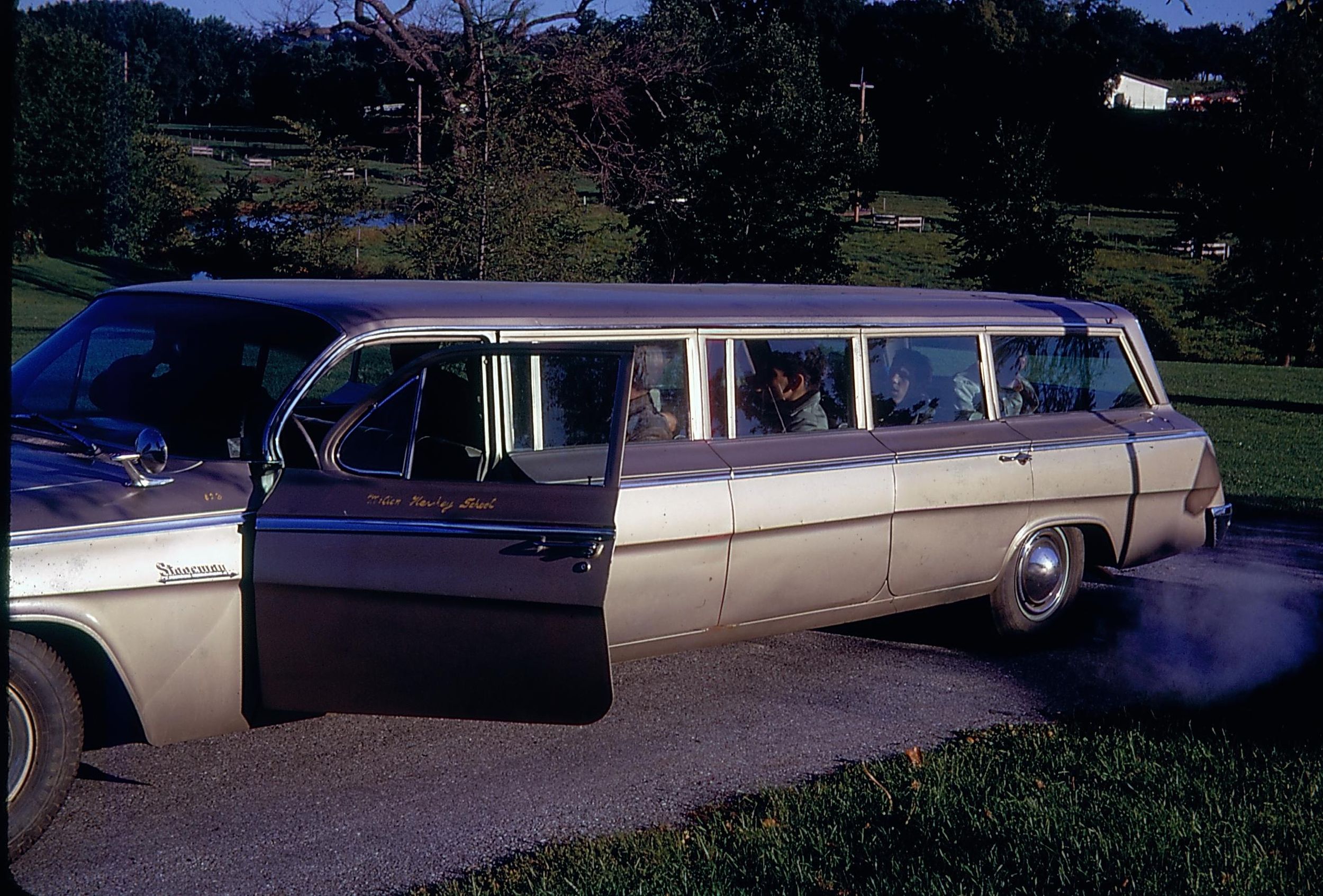
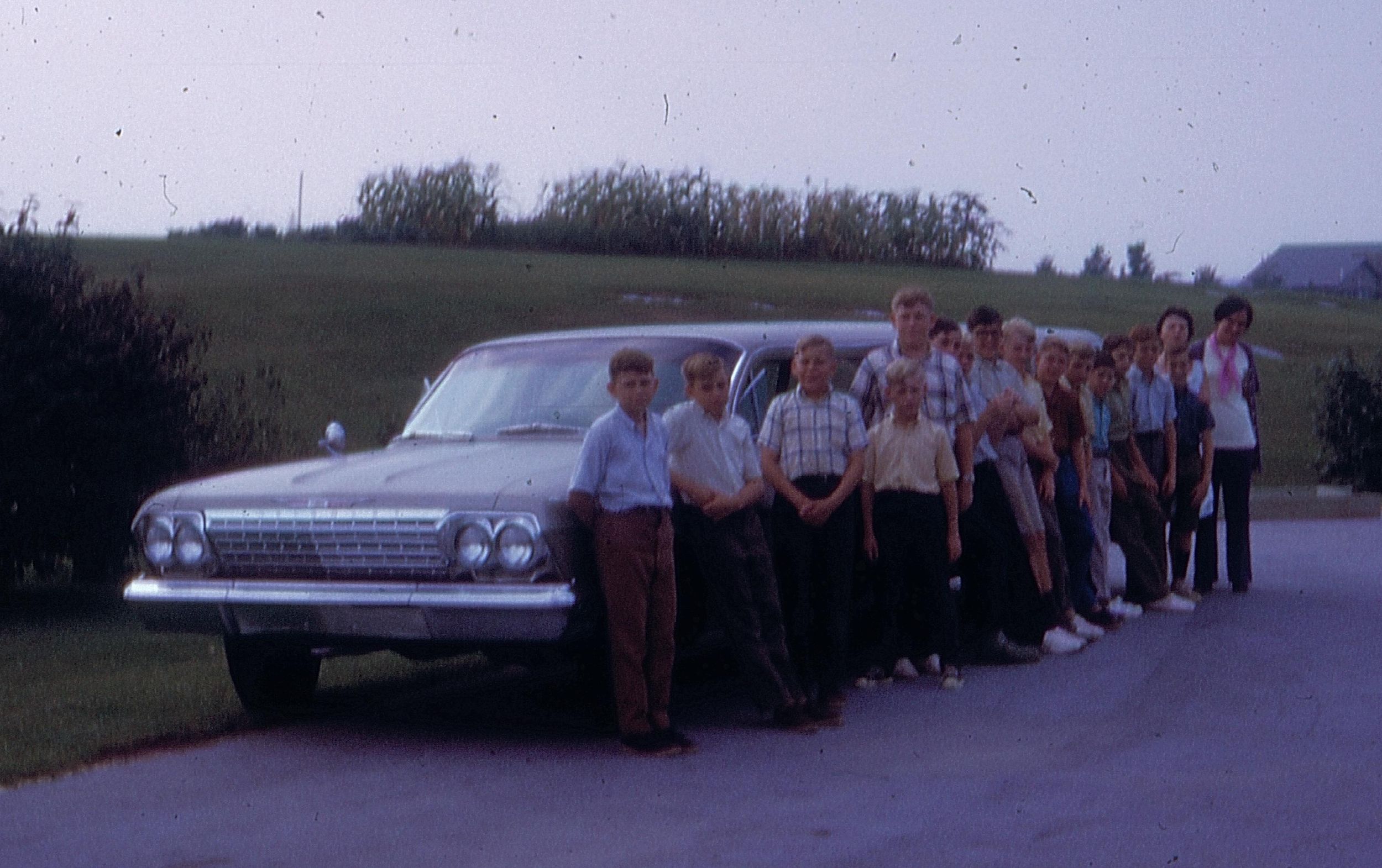
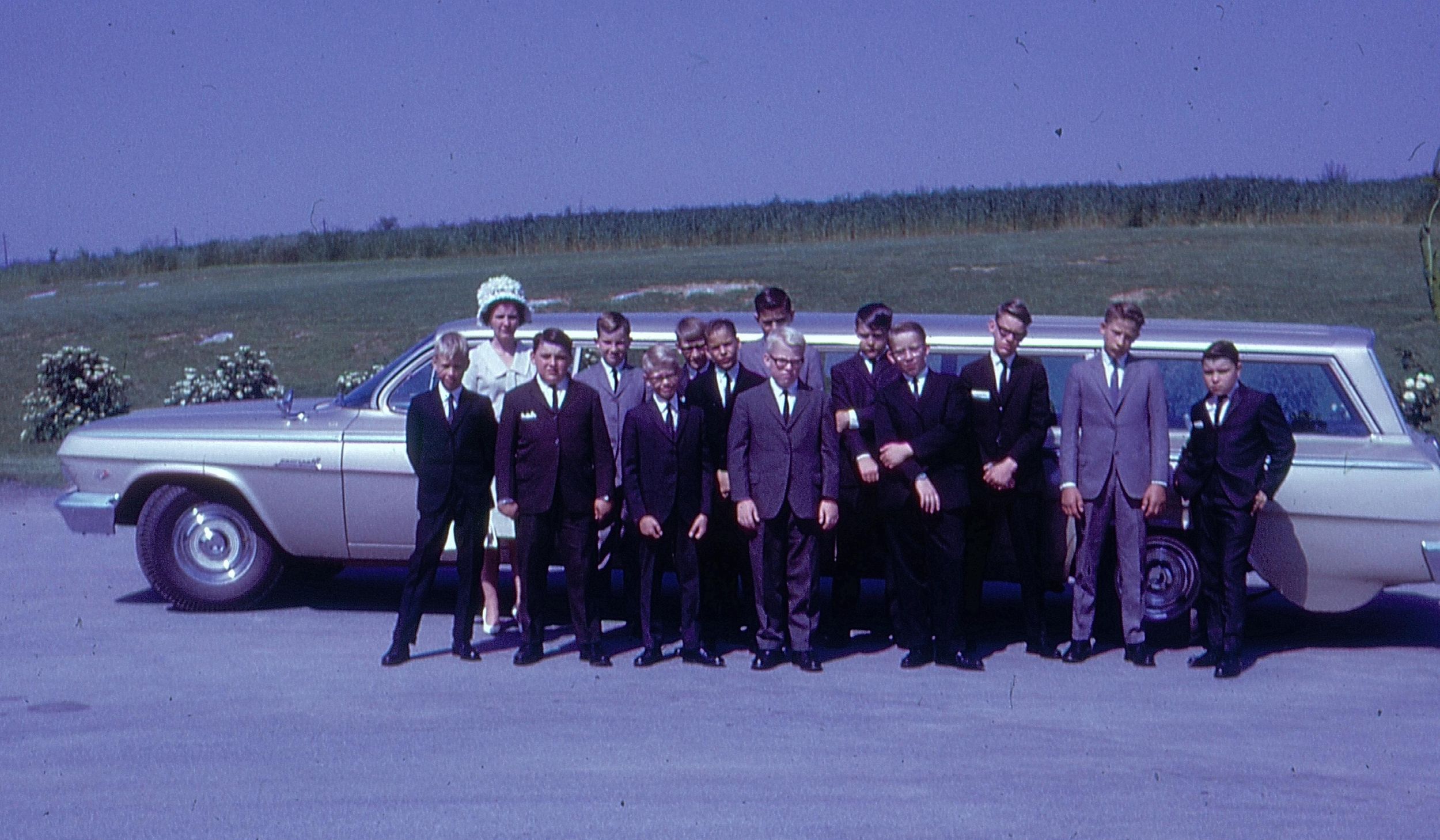
So in 1962, the school purchased about a dozen Chevrolet Biscayne station wagons, each outfitted with a 250hp 327-cu.in. V-8 engine, three-on-the-tree manual transmission, power steering, and power brakes, then sent the wagons to Stageway Coaches in Fort Smith, Arkansas (a predecessor company to coachbuilder Armbruster-Stageway), where Stageway stretched the wagons a few feet and added two more doors per side and three rows of seats, including a rear-facing seat all the way in the back. The last two rows of seats folded down to allow the wagons to do double-duty carrying meals for the students from a central kitchen to their houses. In addition, Stageway supplemented the stock rear coil springs with three-quarter elliptic leaf springs to handle the weight of more than a dozen boys and teenagers.
The school continued to buy stretched wagons until about 1975, switching from Chevrolets to Pontiacs in about 1968, but the wagons remained in service until the early 1980s, when the school phased them out in favor of Dodge Tradesman and Ford Econoline vans. According to John Hanawalt, a past president of the school’s alumni association, the school had owned as many as 85 of the wagons over that timespan.
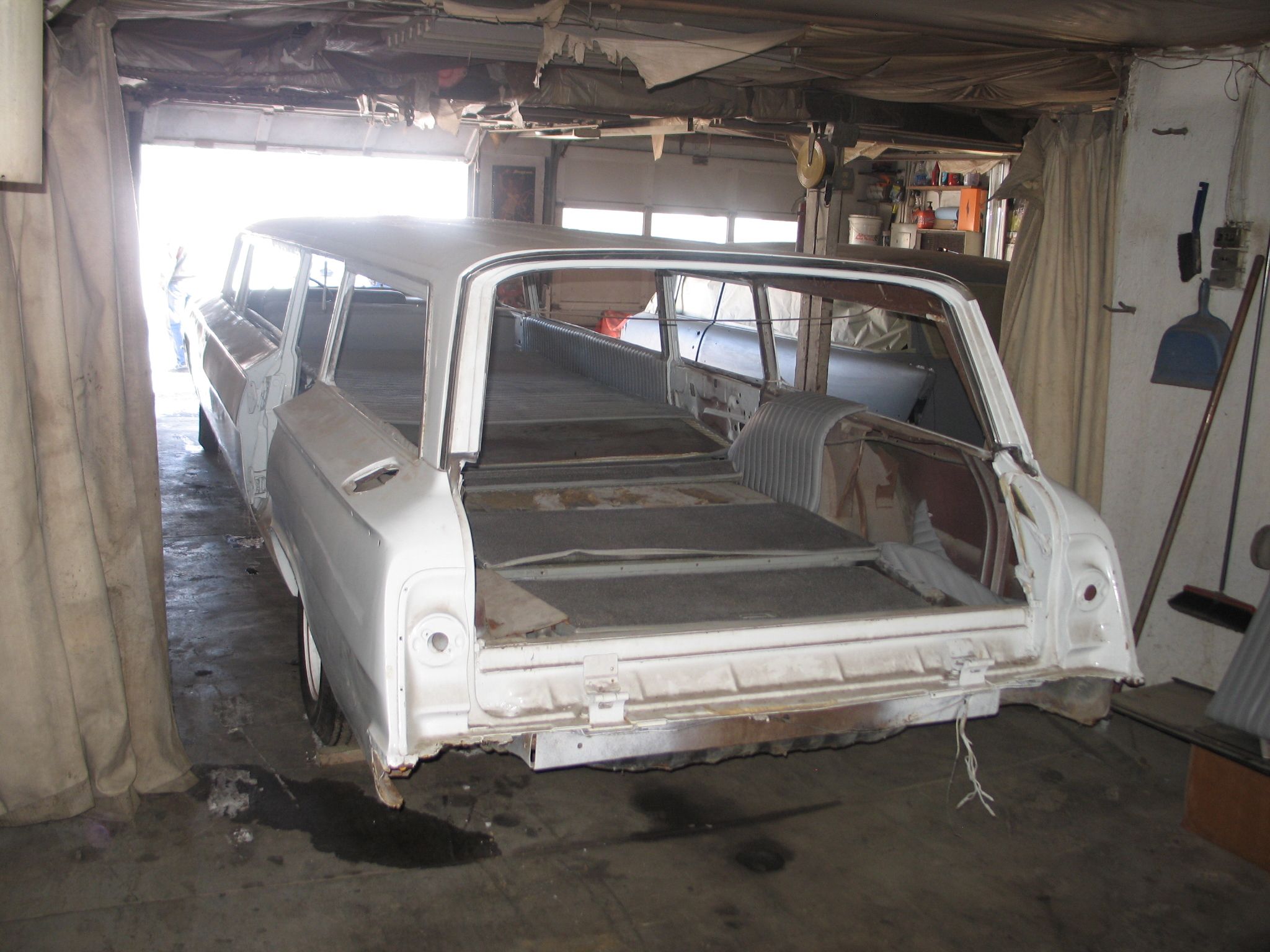
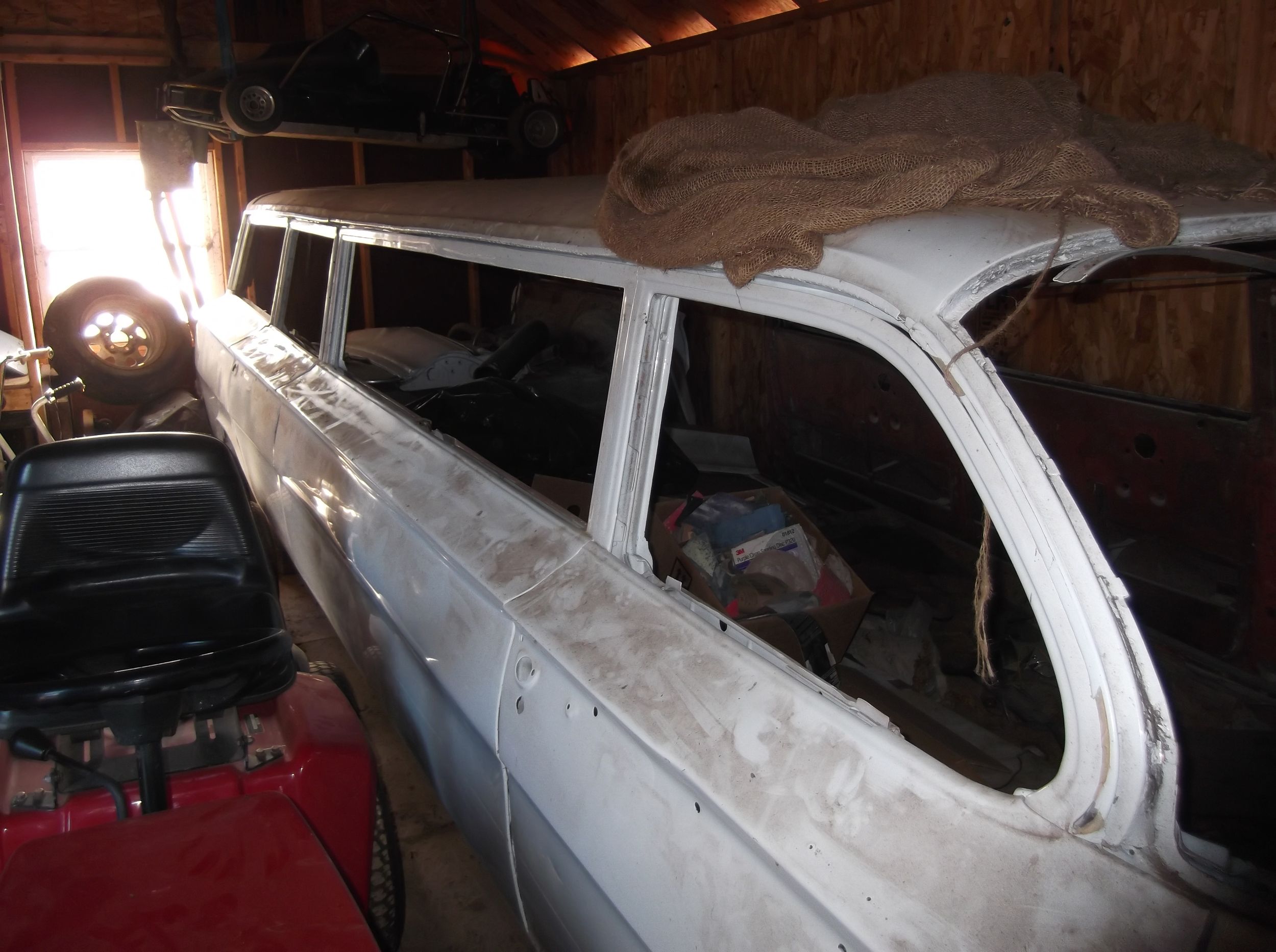
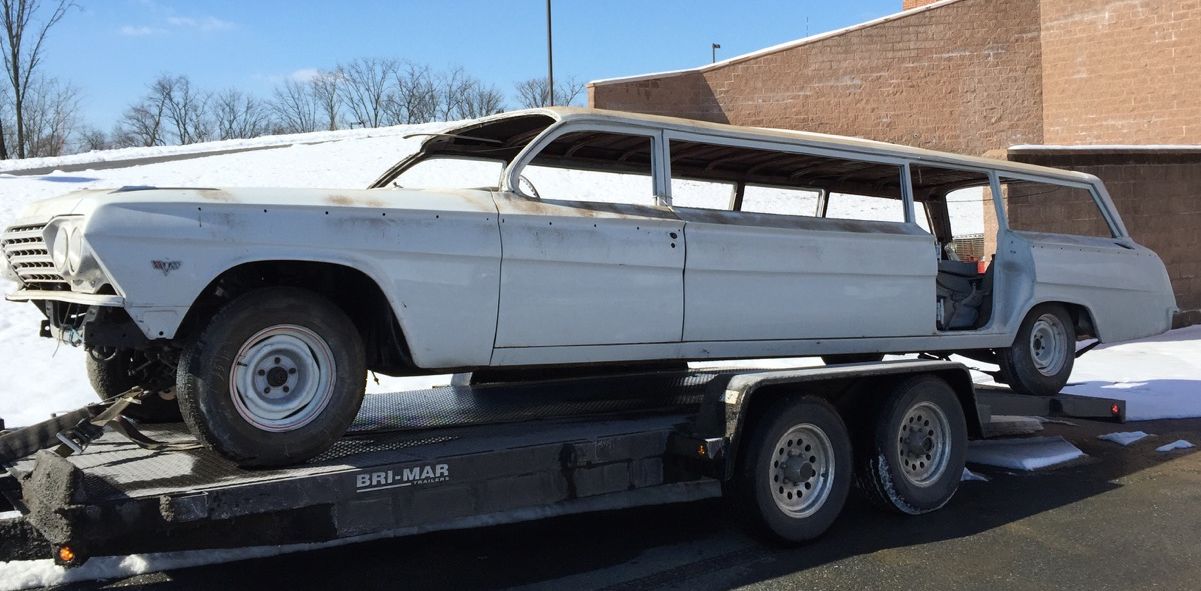
This particular Chevrolet the school sold off as surplus to an area resident in 1972 or 1973, according to AACA Museum director Mark Lizewskie. By the early 2000s, it had ended up engineless and with a crumpled quarter panel in a central Pennsylvania junkyard, which in turn sold it to its previous owner, who installed a big-block Chevrolet V-8 and welded the center doors shut on each side in an attempt to turn it into a limousine.
Then in 2009, a group of Milton Hershey School students, led by Rosario Sollazzi, one of the school’s alumni, began a search for any remaining MHS station wagons. The school had already acquired one of the Chevrolet wagons, but it was in such poor shape that the school ended up scrapping it. Another alum had one of the Pontiacs in his collection in California, but the only other Chevrolet wagon that came up was the one in Pennsylvania. After a few years of negotiations and after the school decided not to pursue the purchase of another wagon (“They just didn’t want to get into the auto restoration business,” Sollazzi said.), Sollazzi, Hanawalt, and Hanawalt’s brother Jim bought the Chevrolet and donated it to the AACA Museum in the interest of preserving it.
While volunteers at the museum are now preparing the wagon for display in the museum’s upcoming station wagon exhibit, the museum has also started a fundraising campaign for the wagon’s eventual restoration. “We’re looking at a minimum of $40,000 to restore it,” said Lizewskie, who noted that the museum will entrust the restoration to the students of the Pennsylvania College of Technology‘s auto restoration program, who most recently finished a 1970 Chevrolet Chevelle 454 SS for the museum. “This car was always destined to be an educational tool of some sort, so it’s just living up to that destiny by going to them,” Lizewskie said.



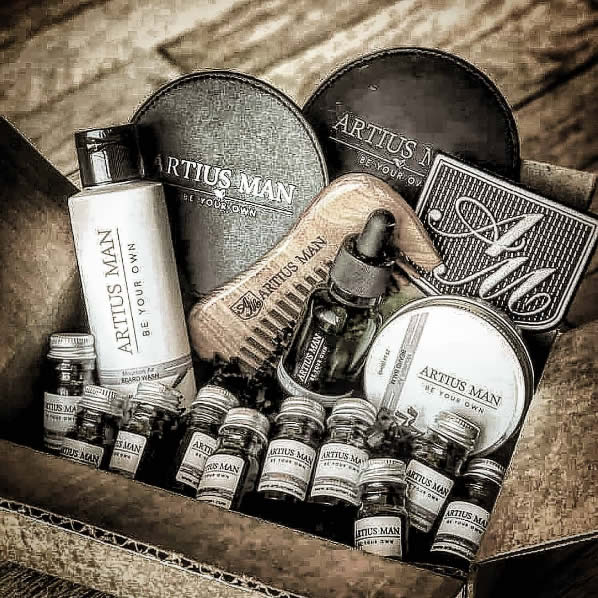

There’s a 1963 Pontiac in one of the pictures, so the switch to Pontiacs must have started earlier than ’68.
Andre: You are correct. After acquiring and using the ’62 Biscaynes, the school felt that they weren’t as robust as they would have liked, so they quickly switched to Pontiacs. Presumably, all of the Pontiac wagons of the 60’s had 389s and automatic transmissions. I was attended the school from 1982 – 1988. The wagon I remember riding in was a Pontiac Catalina Safari from the early 70’s. I remember that had a 455 in it.